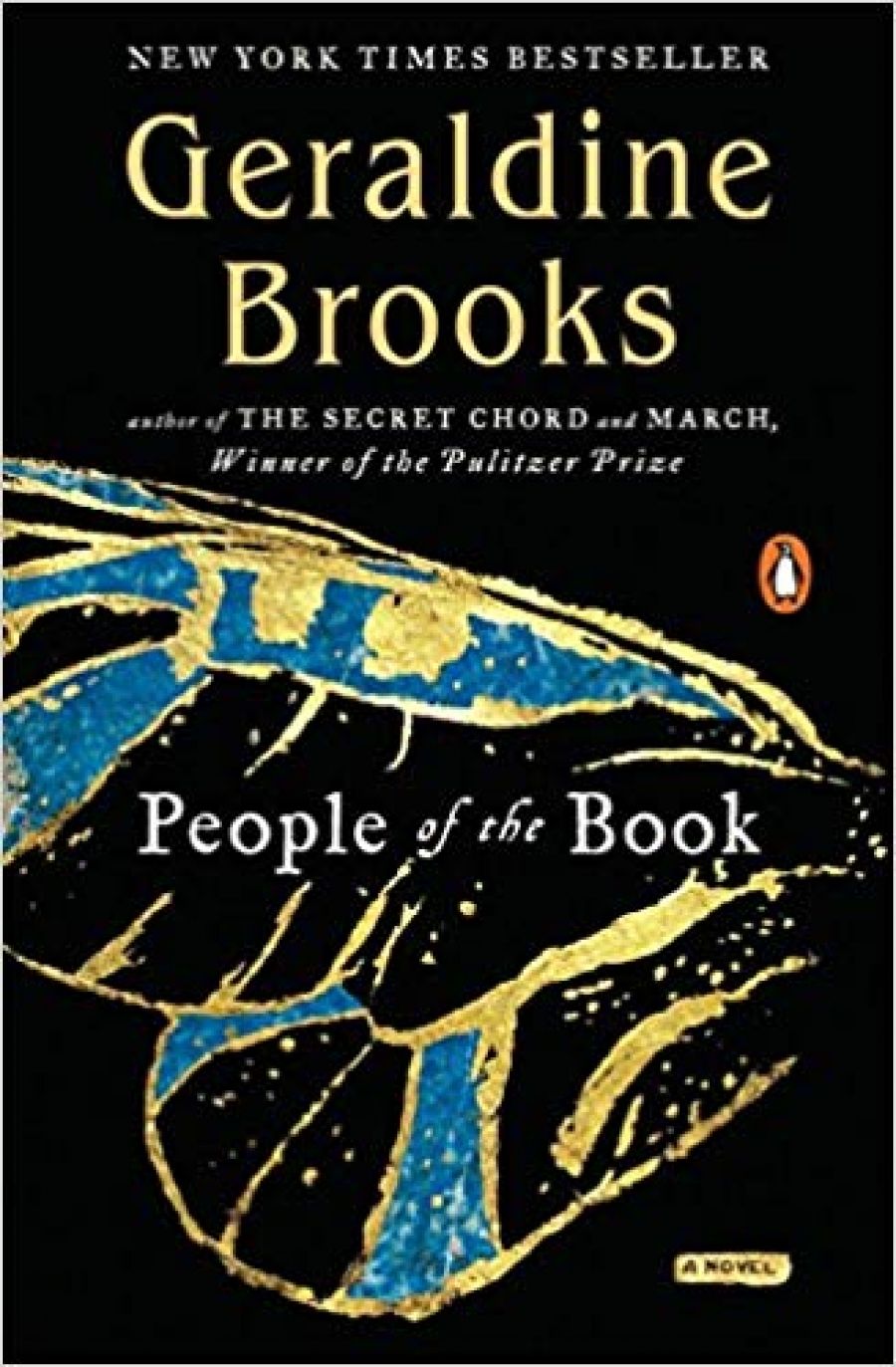
- Free Article: No
- Contents Category: Fiction
- Review Article: Yes
- Online Only: No
- Custom Highlight Text:
‘I wanted to give a sense of the people of the book, the different hands that had made it, used it, protected it. I wanted it to be a gripping narrative, even suspenseful.’ So says Hanna Heath, protagonist of Geraldine Brooks’s latest novel, about her search through time and place for the history of ‘the Sarajevo Haggadah’, the ‘Book’ of the title ...
- Book 1 Title: People of the Book
- Book 1 Biblio: HarperCollins, $19.99 pb, 372 pp, 9780007177424
As the book’s history moves further into the past, Hanna’s journeyings come nearly into the present. This neat structuring pattern is blurred by two things: first, Hanna learns something about her own past, about the father she never knew and his connection by race with the matter of her researches; and, second, by the fact that the last chapter heading, ‘Hanna, Arnhem Land, 2002’, ironically places her in a country much older than any of those in which she has been tracing the Haggadah’s lineage. Elsewhere, she has chided someone for referring to Australia as ‘a young country’. There is something banal and predictable in this manoeuvre, which ultimately finds her involved in the ‘documentation and preservation of ancient Aboriginal rock art’. So much for the mere 500-odd years of the Haggadah.
I wish I could report that Brooks has achieved the ‘gripping narrative’ that Hanna yearned to construct from her conservatorial excavations. In fact, it seems over-ambitious to the point of pretentiousness, its promising ideas (about, say, inter-sectarian cooperation in the face of dreadful threats) asserted rather than developed. Each of the chapters receding in time is so cluttered with new characters, with so much self-conscious attention to place and yet without any real sense of period, that the narrative drive is lost. Further, in Hanna’s own story, she is not just a conservator on the track of something big, but the product of an arbitrarily loveless home, the ‘secret’ of which scarcely accounting for it. These two strands of Hanna’s life are presumably meant to be yoked together by the motif of the search for truth, for pity, for understanding, by a story of books, beliefs and hatreds stretching across centuries.
The Book of the People kept reminding me of other fictions (and it is a fiction, though derived from a true story), and the comparisons were not in its favour. I admired Brooks’s March (date), in which her Civil War research intelligently informed a reworking of Little Women (1868–69). In the new novel, the research seems merely relentless, its results paraded rather than integrated into a compelling narrative. It urgently needs a glossary of those terms that will be arcane to non-Jewish and non-Muslim readers. In its central preoccupation with an ancient document, it recalls Matt Rubinstein’s A Little Rain on Thursday, a terser and more tantalising plunge into obsession, while William Boyd’s Restless alternates a wartime past and a questing present with a tension that provides a ‘gripping narrative’. As a piece of crypto-cultural detective delving, The Da Vinci Code is more efficient.
What really undermines the book, and is an ongoing irritation, is the failure of the character of Hanna to engage one’s interest or sympathy. It is as though Brooks has envisaged her as being played in the film adaptation by Rachel Griffiths as a stroppy, mouthy Australian girl sorting out corrupt and devious Old World characters. She is so irritating that one longs for the next chapter set in the past – there is no chance of her turning up in, say, Venice in 1609. She is made to talk in a faux vernacular that never rings true, addressing people as ‘matie’, referring to ‘blokes’ and ‘Aussies’. Inevitably, she is ‘pissed-off’, wants to tell people to ‘get stuffed’, drinks a lot of beer and says ‘g’day’. She sounds like Russell Crowe at an awards ceremony.


Comments powered by CComment